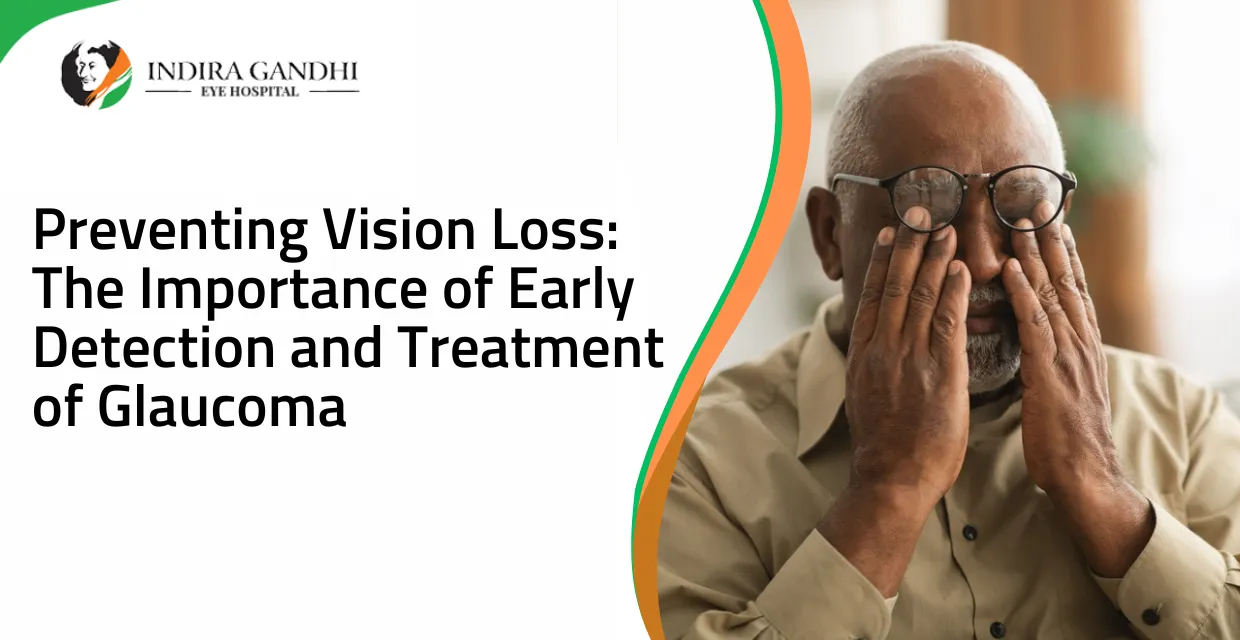Glaucoma is often called the "silent thief of sight," and for good reason. This eye condition gradually damages the optic nerve, which is crucial for good vision. The most concerning aspect of glaucoma is that it often progresses without noticeable symptoms until significant vision loss has occurred. Understanding how glaucoma affects your daily life is essential, especially if you're managing the condition or have a loved one who is.
Understanding Glaucoma
Glaucoma is a group of eye conditions that damage the optic nerve, often due to high pressure in the eye. There are two main types of glaucoma:
Open-Angle Glaucoma: The most common form, it develops slowly and is usually painless.
Angle-Closure Glaucoma: This type is less common but can develop suddenly and is considered a medical emergency.
How Glaucoma Affects Daily Activities
Driving
Vision Loss: Glaucoma primarily affects peripheral vision, essential for safe driving. You might not notice objects or people approaching from the sides, increasing the risk of accidents.
Glare Sensitivity: Many glaucoma patients experience increased sensitivity to glare, making night driving particularly challenging.
Reading
Difficulty in Focus: As glaucoma progresses, you might find it hard to focus on text, or tiny print. This can make reading books, newspapers, or even digital screens strenuous.
Frequent Eye Fatigue: Eye strain becomes common, leading to headaches or the need to take frequent breaks when reading.
Mobility
Navigating Stairs and Curbs: With peripheral vision loss, judging the height of steps or the distance to the curb becomes challenging, increasing the risk of trips and falls.
Crowded Places: Moving through crowded areas like markets or public transport can be daunting, as you may not see people or obstacles in your peripheral vision.
Household Tasks
Cooking: Peripheral vision loss can make it challenging to monitor multiple things simultaneously, such as boiling water and chopping vegetables. This can be particularly hazardous in the kitchen.
Cleaning: Missing spots while cleaning or bumping into furniture are common problems due to limited vision.
Social Interactions
Recognizing Faces: Glaucoma can make it difficult to recognize faces, especially in low light or crowded places, which can affect social interactions and lead to feelings of isolation.
Reading Body Language: Since peripheral vision is crucial for picking up body language cues, you may miss important non-verbal communication.
Managing Glaucoma’s Impact
Regular Eye Check-ups: Early detection and treatment are key. Regular visits to an Eye Hospital in Gurgaon can help manage the condition and slow its progression.
Adaptive Aids: Magnifying glasses, brighter lighting, and voice-activated devices can help manage daily tasks.
Lifestyle Adjustments: Incorporating more breaks during activities like reading or using the computer can reduce eye strain and fatigue.
Support Systems: Engaging with support groups or counselling can help in dealing with the emotional impact of glaucoma, especially the fear of further vision loss.
Technical Details
Intraocular Pressure (IOP): Elevated IOP is a major risk factor for glaucoma. Regular monitoring of IOP is crucial for managing the condition.
Visual Field Testing: This test measures your side (peripheral) vision. It’s a key part of diagnosing and tracking the progression of glaucoma.
Optic Nerve Examination: Eye specialists use this to check for damage to the optic nerve, which can be an early sign of glaucoma.
Table: Comparison of Open-Angle and Angle-Closure Glaucoma
Aspect | Open-Angle Glaucoma | Angle-Closure Glaucoma |
Onset | Gradual | Sudden |
Symptoms | Often none until advanced | Severe eye pain, headache, nausea |
Vision Loss | Slow, affects peripheral vision first | Rapid, can lead to blindness if untreated |
Intraocular Pressure | Typically elevated but can be normal | Very high during an attack |
Treatment | Eye drops, laser therapy, surgery | Immediate medical attention, surgery |
Conclusion
Living with glaucoma requires adjustments, but with the right strategies and support, you can maintain a fulfilling life. Regular visits to an Eye Hospital in Gurgaon are essential to monitor your condition and ensure necessary treatments are administered promptly. By proactively managing your glaucoma, you can reduce its impact on your daily life and preserve your vision for as long as possible.



